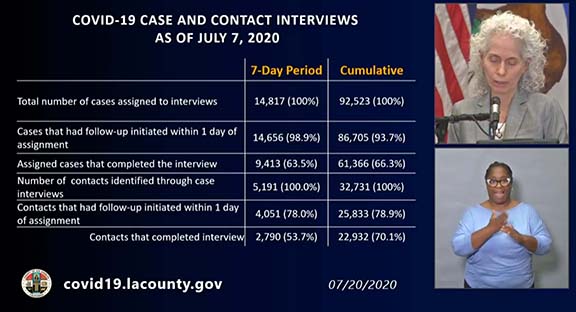Institutional Covid-19 outbreaks impact senior communities

by Steven Felschundneff | steven@claremont-courier.com
As coronavirus cases continue to climb, the Los Angeles County Department of Public Health is reporting three emerging institutional outbreaks in and adjacent to Claremont.
Western Assemblies Home, which serves people affiliated with the Plymouth Brethren Church, has 12 cases among staff, six among residents and one death. Claremont Manor Retirement Community reports cases among six staff and two residents. Mt. San Antonio Gardens, which is in Pomona but has many Claremont retirees, reports cases among four staff members and three residents.
“We have been conducting surveillance and response testing for COVID-19 in our skilled nursing staff and residents. Additionally, any staff who may have had occasion to enter those areas as part of their work, and others who have had suspected or known exposures, are tested as well. Unfortunately, in the last several days, we have received positive results for two skilled nursing residents and a total of four staff in our nursing and housekeeping departments,” Mt. San Antonio Gardens CEO Maureen Beith announced in a statement posted on the Gardens’ website on July 20.
The cases were discovered through random testing of staff and residents of the skilled nursing facility, Ms. Beith told the COURIER on Wednesday. Employees outside of the skilled nursing unit have their temperature taken twice per day and are monitored for symptoms of illness.
“All of these individuals have been, and continue to be, asymptomatic. The employees are safely quarantined at home until cleared to return to work by the LA Department of Public Health. The residents are being cared for in our dedicated COVID-19 area, by nursing staff specifically assigned to only this area,” the statement continued.
Residents of Mt. San Antonio Gardens have access to testing at the community clinic, but there is not a testing requirement among residents who are not currently in the skilled nursing facility.
Claremont’s first institutional outbreak at Country Villa Claremont Healthcare Center appears to have been controlled as the number of cases has not changed in several weeks.
The COURIER reached out to officials at Western Assemblies Home for more details but have not received a response as of press time.
Mike Martinez, senior communications director with Front Porch, the parent company of Claremont Manor, said that the company’s policy is not to comment about outbreaks at any of their properties.
Evidence that the community spread continues in Claremont has been bolstered by a steady increase in new cases week over week. On Wednesday the public health department reported 214 cumulative cases in Claremont, including three in unincorporated areas of the city—a 16 percent increase from a week ago when there were 180 cases. The county also reported one more death, bringing Claremont’s total to four.
There were 3,266 new cases and 64 deaths in LA County reported Wednesday, bringing cumulative cases to 164,870 and total deaths to 4,213.
During a news conference Monday, Supervisor Kathryn Barger said the recent rise in cases across the county is tied in part to social gatherings on the Fourth of July.
She also cautioned county residents that the best way to avoid more stringent shut-down measures is to take the current restrictions more seriously.
“Where we go from here, as the supervisor mentioned, depends on all of us. The simple and personal actions we all take are very powerful and they have never been more important,” Director of Public Health Barbara Ferrer said.
New county legislation for additional financial support
On Wednesday the Los Angeles County Board of Supervisors approved a $1.22 billion spending package from the county’s share of the federal CARES act to fund a broad range of essential services and relief measures.
The legislation provides $656 million for public health, including testing and contact tracing; $200 million for residents through rent relief, food subsides and child care; $160 million in small business grants; and $150 million for the county workforce’s response to the pandemic, including disaster services workers and personal protective equipment for employees.
“The CARES Act funding plan will ramp up our testing and contact tracing, enhance our food assistance programs, and provide much-needed rent relief and eviction defense to vulnerable residents,” according to Supervisor Hilda Solis. “In addition, we made provisions to allocate grants to local small businesses to help them comply with worker protection requirements.”
The county also announced it is providing $10 million to community-based organizations, particularly in the hardest hit areas, to encourage participation in case investigation and contact tracing efforts. They are also piloting an incentive program in which participants in hour-long contact tracing interviews will receive $20 gift cards.
Ms. Ferrer said that contact tracing is a very important tool in containing the spread of COVID-19. But it is not, and should not be, the only tool used.
She stressed that the most important weapon the public has against the virus is to avoid the three C’s: crowded places, confined spaces and close contact with others not in your household.
The county currently employs about 1,600 contact tracers who work to identify people who have come in close contact with an individual who tests positive. There are an additional 900 people currently in training to join the contact tracing force.
Many people who test positive are reluctant to identify close contacts because of fear of losing employment or housing, Ms. Ferrer said. The current health order mandates those infected with COVID-19 isolate for a minimum of 10 days and that all their close contacts quarantine.











0 Comments